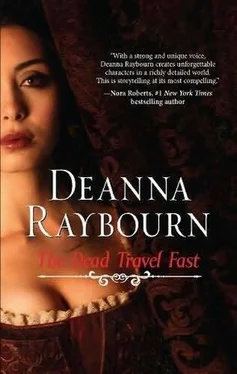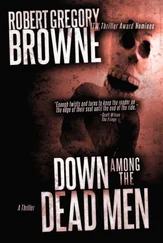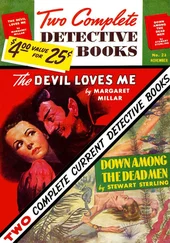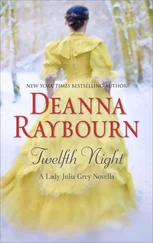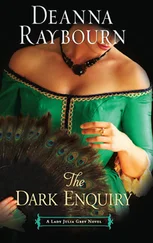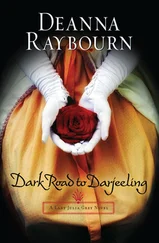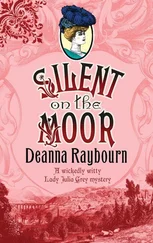“Cosmina, this is Herr Engel. He keeps a private rest home in Hermannstadt. He would like to take you there for a rest,” the count said gently, but I was not deceived. He watched Cosmina as a dog will watch a viper, and she returned the look, cold and calculating.
“I am to be sent away?”
“For a little while,” Herr Engel soothed. “Just until you have recovered your nerves, my dear.”
It was a lie of course, and Cosmina smelled the untruth of it upon him. She laughed, a sharp and bitter sound that shattered the quiet of the great, vaulted room. “I am going away.” She turned to collect us with her look. “I am going away and you all will stay. You will write to me, won’t you?” And then she laughed again until she fell silent, and somehow her silence was worse than anything she could say. No matter how kindly Herr Engel put a question to her, she refused to reply, perhaps as a means to holding the reins of the situation.
At last he shrugged his shoulders and nodded towards the count. The count gestured towards Florian, who opened the doors to the courtyard where a group of village men had gathered. For an instant, it seemed as if a mob had come, and Cosmina’s courage failed her. She staggered a little, but Herr Engel offered his arm in a very gentlemanly fashion, and she took it, raising her chin in a gesture of noble dignity very reminiscent of the countess.
At the doors they paused and Cosmina looked at him. “What about my things? Shall they be sent on? I should like my things.” Her tone was anxious, and Herr Engel was quick to reassure her.
“We have all that you could require. And if there is something of importance, we will send for it,” he soothed.
Mollified, Cosmina walked out with him, never turning back, never saying goodbye. I heard later that the party of villagers divided and seven strong men walked in front of her and seven behind, guarding lest she attempt to flee. The villagers noted the strangeness of the doctor’s carriage, for it was a curious thing, with barred windows and heavy leather shades. And when Cosmina and her escort reached the carriage, he instructed his driver to lock them in together until they reached Hermannstadt.
The villagers had other things to spice the meat of their gossip, for Dr. Frankopan had not been found, but Teodor Popa had returned home, wearing a bright red coat that looked familiar to many. It had been badly slashed, and there were stains upon it that were dark and rusty, but Madame Popa was an excellent housekeeper, and it was not long before the fabric was clean and the rents mended and the brass buttons polished, and when Teodor Popa wore his coat in the village, no one dared to ask him where he had found it. The cottage in the woods remained shuttered and dark, and Madame Popa found employment with the innkeeper, whose wife was carrying again and could no longer manage her duties.
I saw little of the countess, for she did not seem willing to relent in her opinion of me, and every glance she threw my way carried condemnation for Cosmina’s departure. She bore no such ill will towards her son, but I was not surprised. A mother’s indulgence is a powerful thing, and she would not blame the count for his resolution to the situation, but rather I must bear the burden of guilt for bringing Cosmina’s crimes to light.
For his part, Florian’s sadness seemed permanently etched upon his face, and when he sought me out the afternoon before Charles and I planned to leave, I did not know what I should say to him.
We walked to the piggery together, for I craved fresh air and in spite of the cold of the drawing in of autumn, it was bracing and exhilarating. We did not speak until we reached the piggery, and even then Florian seemed to struggle for his words.
“I must ask forgiveness, for this is the Christian thing to do, and I have seen too much of the Devil in this place,” he said suddenly, his face flushing painfully.
“Yes, there is too much of the Devil here,” I agreed. “But what have I to forgive you for?”
He hesitated a long moment, watching a fat porker root in the ground for something tasty. When he spoke, he did not look at me. “I liked you, very much, when first you came here. But then Miss Cosmina says things, terrible things, and I began to hate you. She says them to my mother as well, and my mother, she tells me I must not speak with you. I told her I would speak with you, for you were a kindly person. My mother was angry with you because of this, and soon I believe the things that Miss Cosmina said of you.”
It was a long speech for Florian, and I had no doubt, a painful one. I wanted to put a hand to his arm to console him, but it seemed an intrusion. “I understand, Florian. Either Cosmina or I must have been living a lie, and it is difficult to doubt the one you love.”
He turned swiftly to me to deny it, but I raised a hand. “Let us be truthful in goodbye. I know you loved her. I did as well. There is nothing shameful in your regard for her, Florian. We do not choose where we will love.”
He considered this a long moment, then turned back to his pigs.
“Will you remain here, now that she is gone?”
He shrugged. “To stay, I die. To leave, I die. Here I have memories. They cut me, these memories. But I am content to suffer. So I stay.”
There seemed no possible reply to this that would not diminish the magnitude of his pain, so I fell silent for a time as well and watched the pigs, sleek and content.
“The improvements in the village will lighten the burden of your work,” I said hopefully.
He shrugged again, an Oriental gesture of resignation. “Perhaps. But the villagers carry fear in the heart.”
“They are fearful? Of what?”
“The strigoi at the castle,” he replied.
“They ought not to be. I know the countess still believes that Count Bogdan walks, but no one else does.”
“Tereza believes,” he rejoined. “And she speaks with a loose tongue. She tells the people Count Andrei flew and Count Bogdan walks undead. The people fear the strigoi is come to them.”
I did touch his arm then. “Florian, you must help to persuade them that this is nonsense,” I said, feeling the hypocrite even as I said it. If I, an educated and modern woman had thought it possible, how much likelier were unschooled peasants to believe in such things?
“Is it?” he asked swiftly. He bent towards me. “I am glad you will be leaving. This is not safe, to be here.”
“Florian, you cannot believe it. The Dragulescus have been patrons and friends to your family for so long. You cannot believe they are monsters,” I told him, my tone sharp.
“I see the roof where Count Andrei falls. He says he catches himself, but it is not a possible thing.” He paused, his mournful eyes bright with speculation. “I am believing he flew.”
I felt the anger rising hot and thick within me. What hope did the count hold to banish the rumours if his own steward fed them? “Then I can only say I am surprised you would continue to work for him if you believe it. You should be shamed to take his money.”
Florian gave me a fatalistic smile. “Folk here say, ‘Better a mouse in the pot than no meat at all.’” His expression softened. “I am being a poor man. I must take any coin, even the Devil’s.”
I felt a prick of shame myself then, for I had forgot myself and the fact that Florian must work for his meat. I meant to earn my own keep, but I had Anna and Charles and other means of keeping myself from the workhouse. Here, there was not even that dread institution to provide for Florian should he leave the count’s employ.
“We are neither of us free men, are we, Florian?” I asked finally. And I put out my hand to shake his.
That afternoon, I took my courage in my hands to go and bid farewell to the countess, for although she deplored my presence, the proprieties must be observed, and it was necessary to take formal leave of her before our departure. I found her in her bedchamber, sitting before the fire and stitching at a piece of tapestry bound tightly within its frame. She was working a scene from Greek mythology, a stretch of golden stitches forming a beach and a swathe of blue and green for sea and sky.
Читать дальше
Конец ознакомительного отрывка
Купить книгу
